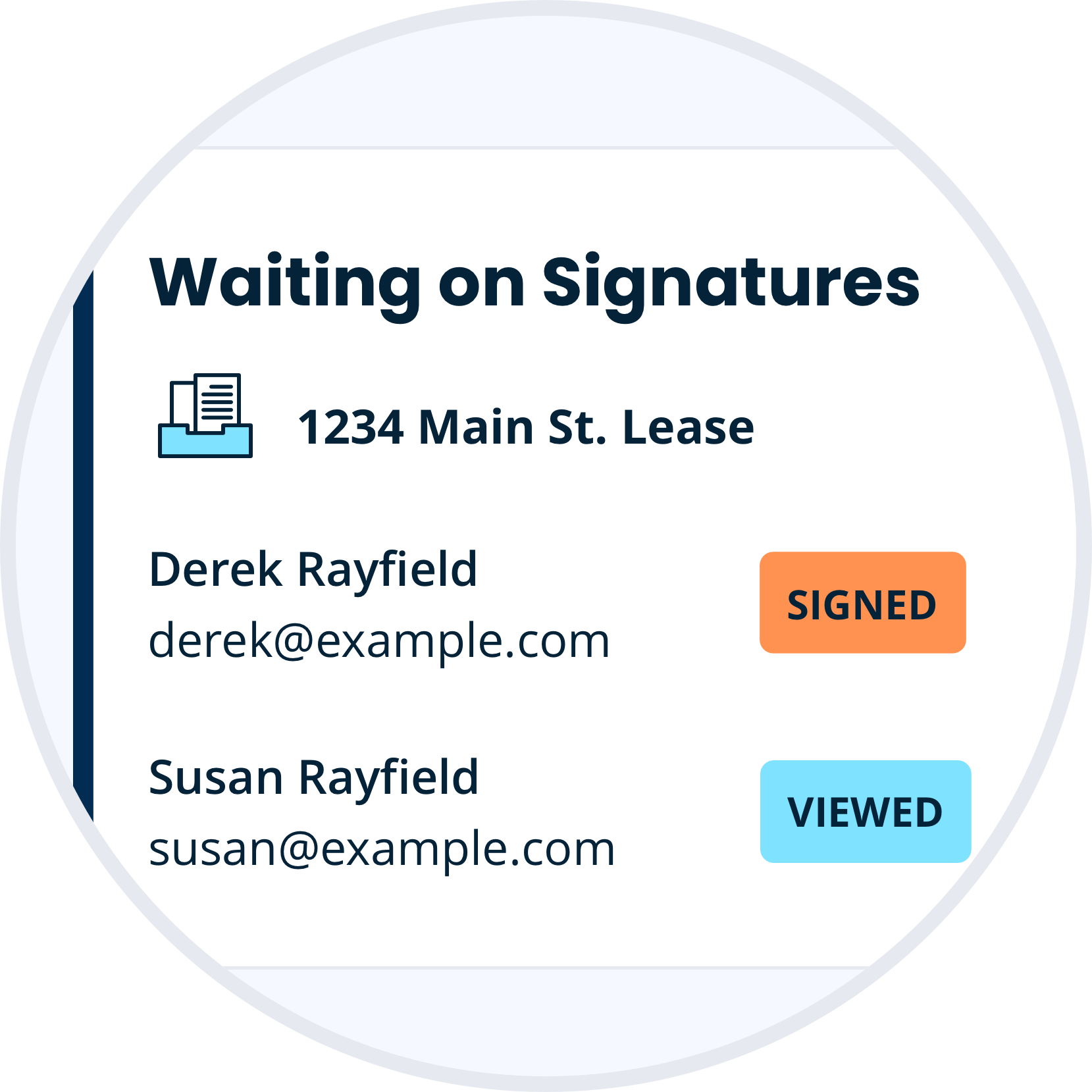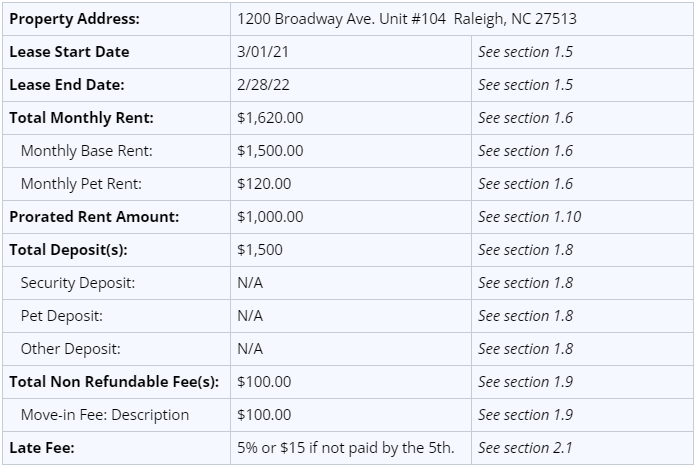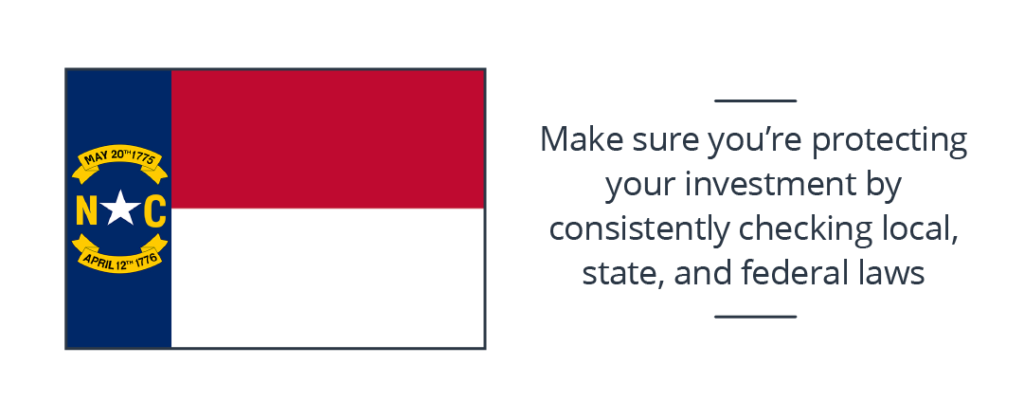Table of Contents
- North Carolina Renters’ Rights and Landlord Responsibilities
- North Carolina Landlords’ Rights and Tenant Responsibilities
- Application Fee
- Criminal Background Check
- Security Deposit
- North Carolina Lease Agreement
- North Carolina Landlord-Tenant Law FAQ
- Due Diligence and North Carolina Rental Laws
- North Carolina Landlord-Tenant Law Resources
North Carolina has a large percentage of residents who are not interested in owning their own home and prefer to rent, which is great news for all of the property investors out there! The demand for rentals pairs nicely with the affordability of homes in North Carolina, which makes investing in rental property here a no-brainer.
Laws that impact the rental market, landlords, and tenants are constantly being decided in states. Make sure you know what’s on your ballot – find North Carolina voting information.

North Carolina Renters’ Rights and Landlord Responsibilities
- Have 30 days to return security deposit
- No notice required before raising rent
- No notice required before entering the property
- Required to make repairs within a reasonable time frame
North Carolina Landlords’ Rights and Tenant Responsibilities
- Tenants have five days to pay rent after they receive a notice
- Must give a 30-day notice before terminating a lease
- Tenants must keep the unit in safe and habitable condition
- A tenant has 30 days to claim abandoned property
- Overdue Rent – If a tenant fails to pay rent on time, the landlord must give them a five-day notice to pay or quit. If the tenant fails to pay, the landlord may file for eviction.
- Terminating a Lease – If a tenant needs to terminate a year-to-year lease, they must give the landlord a 30-day notice.
- Tenant Responsibilities – Tenants are required to keep the property clean and not disturb neighbors.
- Abandoned Property – If a tenant moves out and leaves personal property, the landlord must store the property for 30 days. After this time period, if the ex-tenant has not claimed it, the landlord may sell it or throw it away.
Application Fee
No additional laws
Criminal Background Check
The State of North Carolina has no added laws or restrictions around the collection of criminal background checks. Adherence to general federal law is required. To avoid the perception of discrimination, make sure your screening criteria is stated and is consistent and equal for all groups of people.
Security Deposit
For leases with terms of two months or longer, you may collect a security deposit in an amount equal to two months’ rent.
Build a North Carolina lease agreement in less than 15 minutes.
North Carolina Lease Agreement
There are three sections to a residential lease agreement. The first section outlines the custom details of the contract, such as who’s involved and for what address. Here’s an example North Carolina lease agreement listing details found in Section 1:
North Carolina Landlord-Tenant Law FAQ
Below are answers to some of the most commonly-asked questions when it comes to landlord-tenant laws in North Carolina:
Can You Withhold Rent in North Carolina?
Renters are able to withhold rent if their landlord fails to make repairs.
How Long Does it Take to Evict a Tenant in North Carolina?
Evicting a tenant in North Carolina can take anywhere from 1 to 3 months depending on the reason for eviction.
Is North Carolina a Landlord-Friendly State?
North Carolina is considered a landlord-friendly state because of the lack of rent control laws and the ability to enter without notice or permission.
What is the Eviction Process in North Carolina?
There are four reasons a landlord may file for eviction in North Carolina. The four reasons include failure to pay rent, violation of the lease agreement, the end of the lease term, and illegal activity. Depending on the violation, the landlord must give the tenant notice and anywhere from 5 to 30 days to cure their violation.
If the tenant fails to cure or quit, then the landlord may file a complaint with the court, which costs $96. After the complaint is filed, it will be served to the tenant within five days.
After the tenant receives the summons and complaint, a hearing will be held as soon as seven days, but no later than 30.
If the court rules in favor of the landlord, then a writ of possession will be issued within ten days. The tenant will be evicted immediately and will have up to five days to move out.
How Much Notice Does a Landlord Have to Give a Tenant to Move Out in North Carolina?
Landlords must give a week’s notice before asking a tenant to vacate the property.
Due Diligence and North Carolina Rental Laws
TurboTenant has utilized many municipal sources, along with official state statutes, in order to compile this information to the best of our ability. However, local laws are always in flux, and landlords and tenants alike should do their due diligence and consult legal help when it’s needed. We hope the following list can serve as a valuable resource and allow you to succeed as a landlord or tenant in North Carolina. Be sure to take proper precautions when it comes to finding the top candidates for your unit by utilizing our online rental application and tenant screening services.
Disclaimer: TurboTenant, Inc does not provide legal advice. This material has been prepared for informational purposes only. All users are advised to check all applicable local, state, and federal laws, and consult legal counsel should questions arise.

Unlimited Everything.
Create a single North Carolina lease agreement, or subscribe and receive unlimited lease agreements, landlord forms pack, and e-signs for a simple annual fee. Be confident with all the legal forms and tools you need as a professional landlord.
Discover Our Unlimited PlanNorth Carolina Landlord-Tenant Law Resources
- North Carolina Landlord-Tenant Laws
- North Carolina Landlord-Tenant General Statutes
- Legal Aid of North Carolina – Landlord Tenant Law
- North Carolina Bar Association Landlord Tenant Law
- Landlord Tenant Law Revisions – Video
North Carolina Fair Housing Resources
Other State Resources
- Landlords’ Maintenance and Repair Duties: Your Rights as a Residential Tenant in North Carolina
- Security Deposits: Your Rights as a Tenant in North Carolina – Roy Cooper North Carolina Attorney General
- North Carolina Tenant Security Deposit Act
- North Carolina Late Fee
North Carolina Associations
North Carolina City-Specific Housing Resources
Raleigh
- City of Raleigh – Tenants’ Rights And Obligations
- Tenants’ Rights and Obligations – City of Raleigh
- University of North Carolina off Campus Housing and Residency
- Raleigh Regional Association of REALTORS®
Durham
Greenville
- East Carolina University Off-Campus Housing Service!
- Fair Housing Initiative | Greenville, NC
- City of Greenville housing Plan
- Greenville-Pitt Association of REALTORS®
Charlotte
- University of North Carolina Charlotte Off-Campus Housing Service
- Charlotte Housing Authority
- Charlotte Regional REALTOR® Association
- Charlotte Region Commercial Board of REALTORS®
Greensboro
Winston-Salem
- City of Winston-Salem – Fair Housing and Landlord Tenant
- City of Winston-Salem – Commonly Asked Landlord/Tenant Question
- Winston-Salem Regional Association of REALTORS®
Fayetteville
- Fayetteville Fair Housing Brochure – Cumberland County
- Fayetteville Regional Association of REALTORS®
Wilmington
High Point
Federal Fair Housing Resources







